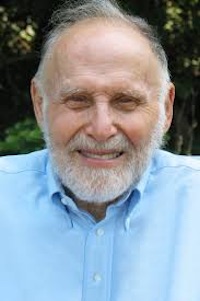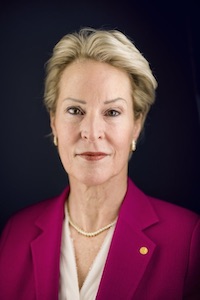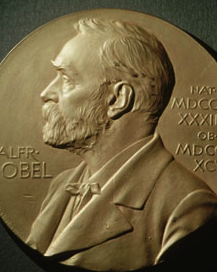Arthur Ashkin, Nobel Prize in Physics

The 2018 Nobel Prize in Physics has been awarded to Arthur Ashkin (ΦBK, Columbia University) for his invention of optical tweezers that grab particles, atoms, viruses, and other living cells with laser beam fingers.
This new tool allowed Ashkin to realize an old dream of science fiction—using the radiation pressure of light to move physical objects. He succeeded in getting laser light to push small particles toward the center of the beam and to hold them there: optical tweezers had been invented. A major breakthrough came in 1987, when Ashkin used the tweezers to capture living bacteria without harming them. He immediately began studying biological systems, and optical tweezers are now widely used to investigate the machinery of life.
Ashkin, a retired Bell Labs scientist, was awarded one half of the 2018 prize. The other half was awarded jointly to Gérard Mourou of the École Polytechnique, Palaiseau, France, and Donna Strickland of the University of Waterloo, Canada, for their method of generating high-intensity, ultra-short optical pulses. The inventions being honored this year have revolutionized laser physics. Extremely small objects and incredibly rapid processes are now being seen in a new light. Advanced precision instruments are opening up unexplored areas of research and a multitude of industrial and medical applications.
Frances H. Arnold, Nobel Prize in Chemistry

The 2018 Nobel Prize in Chemistry has been awarded to Frances H. Arnold (ΦBK, Princeton University) for her work on the directed evolution of enzymes.
In 1993, Arnold conducted the first directed evolution of enzymes, which are proteins that catalyze chemical reactions. Since then, she has refined the methods that are now routinely used to develop new catalysts. The uses of Arnold’s enzymes include more environmentally friendly manufacturing of chemical substances, such as pharmaceuticals, and the production of renewable fuels for a greener transport sector.
The Linus Pauling Professor of Chemical Engineering, Bioengineering, and Biochemistry and the Director of the Donna and Benjamin M. Rosen Bioengineering Center at the California Institute of Technology, Arnold is the recipient of one half of this year’s prize. The other half is shared by George P. Smith, University of Missouri, and Sir Gregory P. Winter, MRC Laboratory of Molecular Biology in Cambridge, UK, for the phage display of peptides and antibodies. Phage display has produced anti-bodies that can neutralize toxins, counteract autoimmune diseases, and cure metastatic cancer. This year’s Nobel laureates in Chemistry have been inspired by the power of evolution and have used the same principles—genetic change and selection—to develop proteins that solve mankind’s chemical problems.




